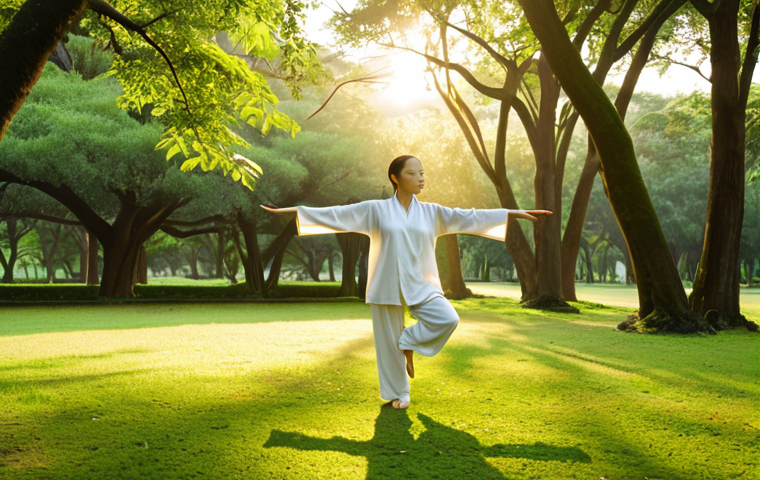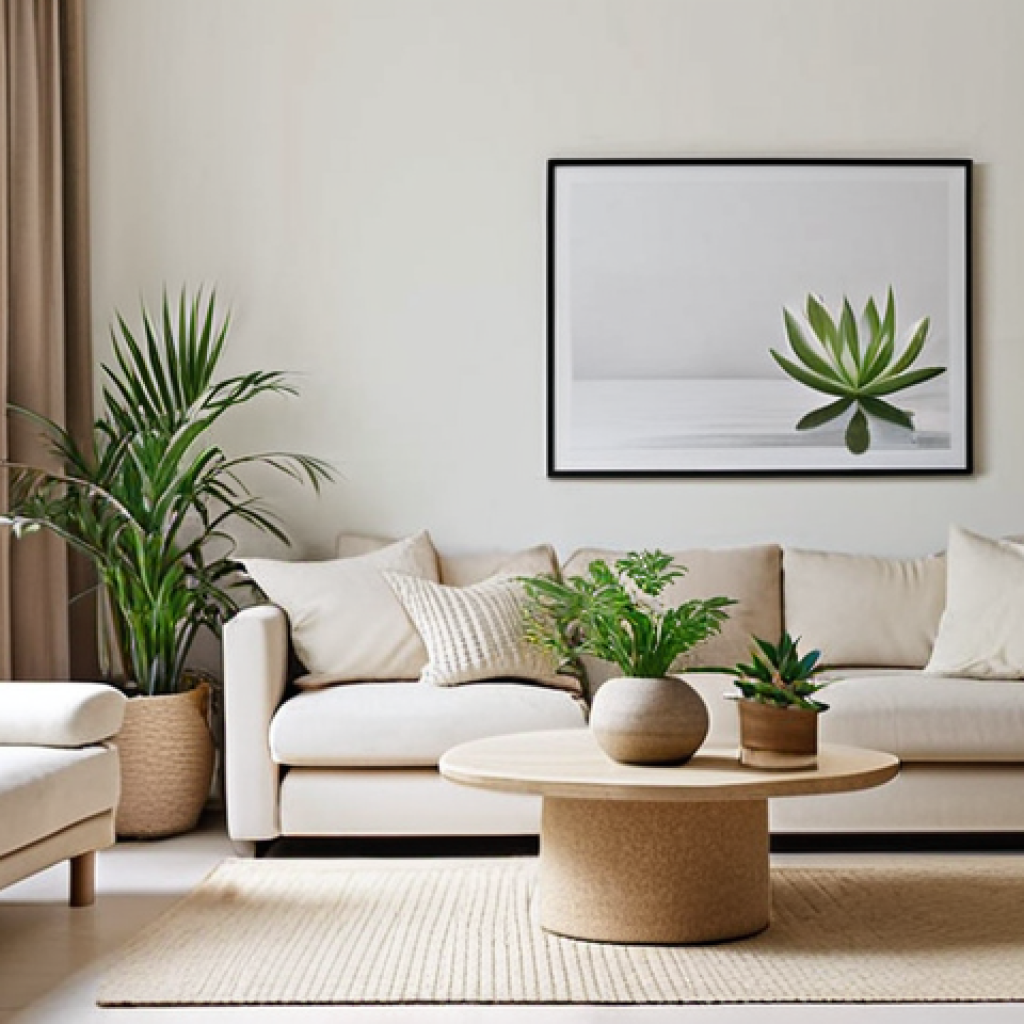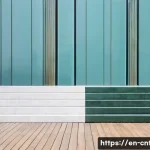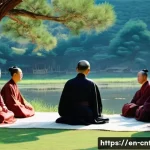Ever wondered about the serene temples nestled in the mountains, or the curious arrangement of objects in a seemingly ordinary home? You might be brushing shoulders with the ancient wisdom of Taoism and Feng Shui.
These philosophies, deeply intertwined, offer a fascinating lens through which to view our world and our place within it. From harmonizing your living space to understanding the flow of energy, they present practical, time-tested methods for cultivating balance and well-being.
Having delved into these myself, I’ve discovered how profoundly these principles can impact daily life, offering a sense of grounding and connection that feels almost instinctual.
Recent trends show a resurgence in interest, particularly among millennials seeking mindful living practices and a greater connection to nature. Experts predict these practices will continue to adapt, integrating with modern design and technology to create even more personalized and effective solutions.
Let’s explore these fascinating concepts in detail below.
Unlocking the Secrets of Chi: Understanding Energy Flow

What is Chi and Why Does It Matter?
Chi, or Qi, is the fundamental life force that animates everything around us. In Taoism, it’s not just about physical energy; it encompasses emotional, mental, and spiritual vitality as well.
Think of it as the invisible current that connects all things, influencing our health, relationships, and overall well-being. When Chi flows freely, we feel vibrant and energized.
When it becomes blocked or stagnant, we may experience fatigue, stress, or even illness. Personally, I’ve noticed a huge difference in my focus and energy levels when I make an effort to cultivate a good Chi flow in my surroundings.
It’s like the difference between a sunny day and a cloudy one – the world just feels brighter and more full of potential.
Simple Ways to Cultivate Positive Chi
So, how do we encourage this life-giving energy to flow freely? Simple practices like spending time in nature, practicing mindful breathing, and decluttering our living spaces can make a significant difference.
Ever noticed how refreshed you feel after a walk in the park? That’s Chi in action. Even small changes like opening your windows to let in fresh air or adding plants to your home can have a powerful effect.
I’ve found that regularly decluttering my workspace not only makes me feel more organized but also noticeably improves my concentration.
Chi in Your Body: Practices for Enhancement
Beyond the environment, consider activities that directly enhance Chi within your body. Tai Chi and Qigong are ancient Chinese practices designed to cultivate and circulate Chi through gentle movements and focused breathing.
Yoga and meditation can also be incredibly beneficial. These practices help to clear blockages, reduce stress, and promote a sense of inner peace. I remember when I first started practicing yoga, I was surprised at how much tension I was holding in my body.
With regular practice, I’ve become much more aware of my body’s energy flow and better able to release stress.
Feng Shui Fundamentals: Creating Harmonious Spaces
The Power of Placement: Understanding Key Areas
Feng Shui, literally “wind and water,” is the art of arranging your environment to optimize the flow of Chi. The placement of furniture, colors, and objects can all influence the energy of a space.
Consider the entrance to your home, often referred to as the “mouth of Chi.” A welcoming entrance invites positive energy in, while a cluttered or dark entrance can block it.
Similarly, the bedroom is a sanctuary for rest and rejuvenation, so it should be a calming and clutter-free space. When I reorganized my bedroom according to Feng Shui principles, focusing on creating a sense of balance and tranquility, I definitely noticed a difference in my sleep quality.
Balancing the Five Elements: Harnessing Nature’s Energies
The Five Elements – Wood, Fire, Earth, Metal, and Water – are fundamental to Feng Shui. Each element represents different qualities and energies, and balancing them in your environment can create harmony.
For example, Wood represents growth and vitality, while Fire represents passion and inspiration. Using colors, materials, and shapes associated with each element can help to create a sense of balance.
I learned that adding a wooden plant to my office can enhance creativity, while incorporating metal accents can promote focus and clarity.
Decluttering: Releasing Stagnant Energy
Clutter is the enemy of good Feng Shui. It blocks the flow of Chi, creating stagnant energy that can negatively impact your health and well-being. Getting rid of unnecessary items not only frees up physical space but also clears mental space.
Think of it as releasing old energy to make way for new opportunities. I challenge myself to declutter one small area of my home each week, whether it’s a drawer, a shelf, or a corner of a room.
The feeling of lightness and clarity afterwards is always worth the effort.
Practical Applications: Taoism and Feng Shui in Modern Life
Home Office Harmony: Boosting Productivity
With so many people working from home these days, creating a harmonious home office is more important than ever. Place your desk in a position that allows you to see the door, which is considered the power position.
This gives you a sense of control and helps to reduce anxiety. Make sure your workspace is well-lit and clutter-free. Add plants to bring in positive energy and promote creativity.
I rearranged my desk to face the door and added a small succulent, and I’ve noticed a definite improvement in my focus and motivation.
Creating a Sleep Sanctuary: Enhancing Rest and Rejuvenation
Your bedroom should be a haven for rest and relaxation. Avoid using electronic devices in the bedroom, as they can disrupt sleep patterns. Choose calming colors and soft textures for bedding and décor.
Position your bed so that your headboard is against a solid wall, which provides a sense of security. Ensure good air circulation and natural light. Blackout curtains can also be helpful for creating a dark and restful environment.
After making these changes, I can honestly say that my sleep has never been better.
Relationships and Harmony
Consider Feng Shui to enhance relationships by promoting communication and empathy in shared spaces. Ensure seating arrangements in living rooms or dining areas encourage face-to-face interaction, fostering connection and understanding.
Incorporating elements that represent partnership, such as pairs of objects or artworks, can subtly reinforce feelings of love and companionship. I added two matching lamps to my living room and it really created a sense of balance.
Common Misconceptions: Clearing Up Confusion
Is Feng Shui Just Superstition?
One of the biggest misconceptions about Feng Shui is that it’s just a form of superstition. While it does incorporate some spiritual elements, Feng Shui is primarily based on observation and practical principles of design.
It’s about creating environments that support our well-being by optimizing light, air quality, and spatial arrangement. The principles are based on natural flows and energy, but it can be misunderstood as superstition.
Does Feng Shui Require Expensive Renovations?
You don’t need to spend a fortune to implement Feng Shui principles. Small changes like decluttering, rearranging furniture, and adding plants can make a big difference.
You can also incorporate colors and materials associated with the Five Elements without undergoing major renovations. Focus on making simple, affordable changes that resonate with you.
I started with a small budget and gradually made changes over time, focusing on areas that needed the most attention.
Feng Shui and Personal Taste
It’s important to remember that Feng Shui is not about imposing a specific aesthetic or style. It’s about creating a space that feels harmonious and supportive to you.
Don’t feel pressured to follow every single rule if it doesn’t align with your personal taste. Adapt the principles to suit your preferences and create a space that reflects your unique personality.
I’ve found that the most effective Feng Shui practices are the ones that feel authentic and natural to me.
The Science Behind the Spirituality
Environmental Psychology: The Impact of Space
Environmental psychology studies the relationship between people and their physical environment. Research in this field supports many of the principles of Feng Shui, such as the importance of natural light, fresh air, and clutter-free spaces.
Studies have shown that exposure to natural light can improve mood and productivity, while clutter can increase stress and anxiety. Personally, I have always felt better in a well-lit and organized space, and now I understand why.
The Neuroscience of Calm Spaces
Neuroscience is also shedding light on the benefits of creating calm and harmonious environments. Studies have shown that exposure to natural elements, such as plants and water features, can reduce stress hormones and promote relaxation.
This is because these elements activate the parasympathetic nervous system, which is responsible for the body’s “rest and digest” response. Creating a space that appeals to the senses can truly promote well-being.
Modern Design Embracing Ancient Wisdom
More and more architects and designers are incorporating Feng Shui principles into their work. They recognize the importance of creating spaces that are not only aesthetically pleasing but also supportive of human health and well-being.
This trend reflects a growing awareness of the connection between our environment and our overall quality of life. I’ve noticed that many new homes and offices are designed with Feng Shui principles in mind, creating spaces that are both beautiful and functional.
Integrating Taoism and Feng Shui: A Holistic Approach
Mindfulness and Intention: Setting the Tone
The most important aspect of integrating Taoism and Feng Shui is to approach it with mindfulness and intention. Before making any changes to your environment, take the time to reflect on your goals and intentions.
What do you want to achieve by incorporating these principles? Do you want to improve your health, enhance your relationships, or boost your career? By setting clear intentions, you can create a space that supports your goals and helps you to live a more fulfilling life.
Start by setting clear intentions and let the energy flow!
Meditation and Visualization: Connecting with Chi
Meditation and visualization can be powerful tools for connecting with Chi and enhancing the energy of your environment. Spend time each day meditating in your home, visualizing the flow of positive energy throughout your space.
Imagine the Chi circulating freely, clearing away any blockages and bringing harmony and balance. This practice can help you to develop a deeper connection with your home and create a more supportive environment.
I found that by meditating in my living room, I could visualize the positive flow of energy throughout my home.
Embracing Imperfection: Finding Balance
Ultimately, the goal of integrating Taoism and Feng Shui is to create a sense of balance and harmony in your life. This doesn’t mean striving for perfection, but rather embracing imperfection and finding beauty in simplicity.
Remember that life is a journey, and the process of creating a harmonious environment is an ongoing one. Be patient with yourself, and enjoy the process of discovering what works best for you.
| Concept | Description | Application |
|---|---|---|
| Chi (Qi) | Life force energy that flows through everything. | Practice Tai Chi, spend time in nature, declutter your home. |
| Five Elements | Wood, Fire, Earth, Metal, Water – represent different qualities and energies. | Balance these elements in your environment using colors, materials, and shapes. |
| Yin and Yang | Complementary opposites that create balance. | Incorporate both Yin (calm, passive) and Yang (active, assertive) elements in your home. |
| Bagua Map | A tool used to map out the energy of a space and identify areas for improvement. | Use the Bagua map to analyze your home and make adjustments to enhance specific areas of your life. |
| Clutter | Stagnant energy that blocks the flow of Chi. | Regularly declutter your home to release stagnant energy and create space for new opportunities. |
Unlocking the flow of Chi and harmonizing your space through Taoism and Feng Shui isn’t just about rearranging furniture; it’s about consciously shaping your environment to support your well-being and aspirations.
It’s a journey of self-discovery, where you become more attuned to the energies around you and how they impact your life. Embrace the process, trust your intuition, and create a space that truly nourishes your mind, body, and spirit.
Wrapping Up
As we conclude, remember that integrating Taoism and Feng Shui into your life is an ongoing journey, not a destination. It’s about cultivating awareness, embracing balance, and creating a space that resonates with your unique energy and aspirations. I’ve found it to be a profoundly transformative practice, and I encourage you to explore these principles and discover the positive impact they can have on your life.
Start small, stay curious, and trust the process!
Useful Tips
1. Enhance your entryway by ensuring it’s well-lit and inviting, which helps to draw in positive Chi.
2. When positioning your desk, opt for a location that provides a clear view of the door, offering a sense of control and reducing anxiety.
3. To boost focus and creativity, introduce plants into your workspace or study area, which not only purify the air but also add a touch of nature.
4. In shared spaces like the living room, arrange seating to encourage face-to-face conversations, fostering better communication and connection.
5. Regularly declutter your surroundings to free up physical space and clear mental space, which promotes a sense of order and tranquility.
Key Takeaways
Chi (Qi): Cultivate positive Chi through mindful practices like Tai Chi and spending time in nature.
Five Elements: Balance Wood, Fire, Earth, Metal, and Water in your environment for harmony.
Decluttering: Regularly clear out clutter to release stagnant energy and invite new opportunities.
Mindfulness: Approach Feng Shui with intention and mindfulness to align with your goals.
Personal Taste: Adapt Feng Shui principles to suit your unique preferences and create a space that feels authentic to you.
Frequently Asked Questions (FAQ) 📖
Q: So, I’ve heard a lot about Feng Shui, but honestly, it sounds a bit…out there. Can you give me a super simple example of how it actually works in a home?
A: Totally get it! It can seem a little esoteric. Think of it like this: imagine walking into a room crammed with clutter, versus a room that’s tidy and has good light.
Which one makes you feel more relaxed and energized? Feng Shui is about maximizing that good energy (called “Chi”) in your space. A classic example is your entryway.
If it’s blocked with shoes, coats, and junk, it’s blocking the flow of good energy coming into your home and, by extension, your life! Clear it, add a nice plant, and suddenly, it feels more welcoming and positive.
Small changes, big impact, I swear! I actually moved a mirror in my hallway based on Feng Shui principles, and the whole area feels brighter and more open now.
It’s kind of crazy how much it changed the vibe.
Q: Taoism seems really philosophical. Is it something you can actually apply to everyday life, or is it just for monks meditating in caves?
A: Definitely applicable to everyday life! It’s all about finding balance and living in harmony with nature and yourself. Think of it as a gentle guide to navigating life’s ups and downs.
For example, Taoism emphasizes “Wu Wei,” which doesn’t mean doing nothing, but rather acting in accordance with the natural flow of things, like water flowing around a rock.
In a practical sense, it means letting go of the need to control every outcome and trusting the process. I used to get so stressed about deadlines at work, but after learning about Wu Wei, I started focusing on doing my best in the moment and letting go of the anxiety about the future.
It’s made a huge difference in my stress levels, honestly. It’s not about becoming a zen master overnight, but incorporating small mindful practices.
Q: These principles sound interesting, but how do I know if they’re actually legit?
A: re there any scientific studies or anything to back them up? A3: That’s a fair question! While it’s true that Taoism and Feng Shui are rooted in ancient traditions and aren’t typically subjected to rigorous scientific studies in the Western sense, many of their principles align with concepts that are being studied in fields like environmental psychology and neuroscience.
For example, studies have shown that access to natural light and green spaces can reduce stress and improve mood, which supports the Feng Shui emphasis on these elements.
Similarly, research on mindfulness and meditation supports the Taoist emphasis on presence and inner peace. Ultimately, it’s about personal experience and whether these practices bring positive changes to your life.
Look at it this way: maybe it’s not “science” in the traditional sense, but if decluttering your home and spending time in nature makes you feel better, that’s a pretty good indicator that something’s working, right?
Plus, you can find many architects now incorporating Biophilic design, which is based on similar philosophies, into homes and offices to boost well-being and productivity.
So, while a scientific study might not directly prove Feng Shui, the effects are proving to be beneficial when applied correctly.
📚 References
Wikipedia Encyclopedia
구글 검색 결과
구글 검색 결과
구글 검색 결과






